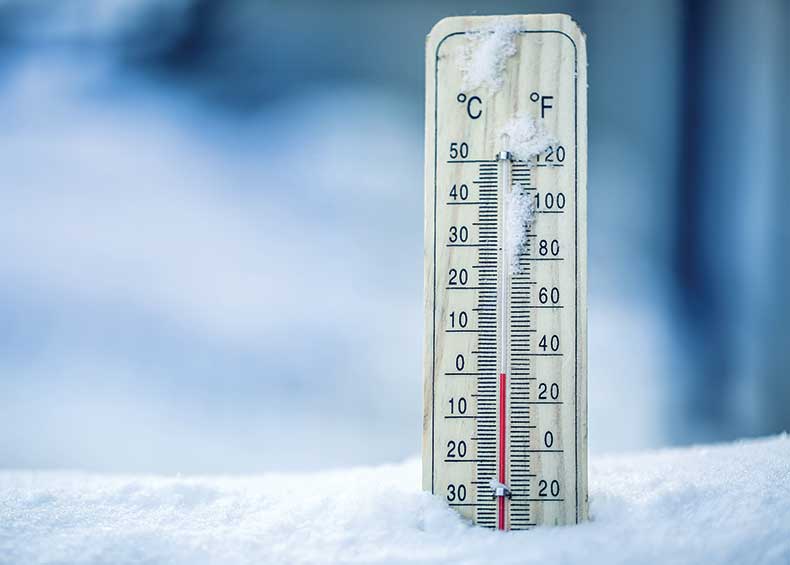January was wrought with extremely cold temperatures, with several days and nights in the low 20s, teens and even single digits.
While spending the day inside in the warmth of your home, thinking about your electricity use is not likely on your priority list. You cook dinner, bump up the thermostat, throw in a load of laundry, take a hot shower, charge your devices and run the dishwasher, confident in your power supplier. Not until the time of month when your electric bill arrives, do you ask, “Why is my electric bill so high?!”
At this time of year, it’s not uncommon for our member service specialists to be inundated with calls concerning higher electric bills: “I don’t cook”…“I wasn’t even home”…“I never adjust my thermostat”…“I only wash clothes once a week.”
Even when no one is home, your house is busy keeping things running. Refrigerators, freezers, water heaters and heating systems all continue to work even if you are not home. Keeping your home hot or cold, depending on the season, accounts for a big chunk of your annual budget. In fact, according to the U.S. Department of Energy, 45 percent of the average U.S. homeowner’s energy bill is spent on heating and cooling.
Instead of waiting until after a potentially high bill is in your mailbox, be proactive. There are things you can do now to help ensure you are managing your energy use and spending less.
- Colder weather outside causes your heat to come on inside, and your increased use reflects that. Your use typically mirrors the outside temperatures. While your thermostat setting is the same, the colder temperatures outside require your heating system to run more often.
- It is imperative to have your HVAC unit serviced at least once a year, or better yet, twice a year, to ensure it is performing at its optimal level during the heating season (try our advice on finding a quality HVAC company). Also, make sure to change your air filter once a month to keep air flowing freely throughout your home.
- In addition to the colder weather, often the cause for higher usage could be using more hot water during a shower or bath. Next time you take a shower, remember—heating water accounts for up to 11 percent or more of your utility bill. Limit shower time and consider insulating your water heater to reduce standby heat loss.
- Caulk or weather strip overlooked cracks, gaps, and openings around windows, doors, plumbing and wiring fixtures to keep cold air from entering and warm air from escaping your house (more information on sealing your house for savings).
- Savings add up in a hurry when heating and cooling systems are adjusted for maximum efficiency. Many members don’t take the advice to set their thermostat at 68 degrees while awake and lowering it a few degrees at night and when not at home. Want to save more? Turning the thermostat down 2-5 degrees can save up to 5-10 percent a year on the heating bill, about one percent for each degree. Even those with the most efficient HVAC systems will see more use in extreme weather (Learn more about optimal thermostat settings for winter)
Consider FlexPay – Our Pay-As-You-Go Alternative to Traditional Billing
As an alternative to traditional billing, Randolph EMC offers FlexPay, a billing options that allows you to pay for your electricity as you use it. The beauty of FlexPay is that you can “fill up” your electric account just like you fill up your gas tank in your car—one gallon at a time or with a full tank.
With FlexPay, there are no due dates or late fees, and instead of a traditional monthly billing statement, your usage and balance are calculated daily. This program is a convenient way to pay for electricity in smaller amounts so that you’re never left with a large bill to pay or past-due balance.



